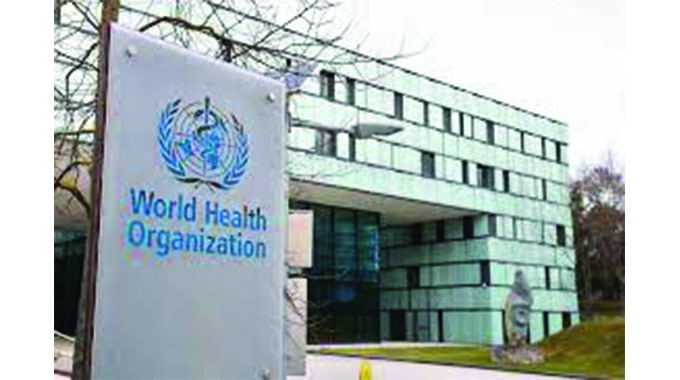Healthcare funders discuss mental health

Leonard Ncube, Victoria Falls Reporter
HEALTH experts have called for a holistic approach to address mental health issues like depression and suicide, which are killing at least one person, mostly among the 15-29 age group, every 40 seconds worldwide.
According to the World Health Organisation (WHO) Special Initiative for Mental Health Situational Assessment (2020), the rate of suicide in Zimbabwe is higher among men (26,9 per 100 000 people) than women (9,7 per 100 000).

World Health Organization (WHO)
The 20-29 years age group has a higher prevalence of bipolar disorder (0.9 percent) while 1,8 percent have major depressive disorder and 3 percent suffer from alcohol use related disorders, and 1,9 percent from drug abuse disorders compared to older adults.
Zimbabwe has the Zimbabwe National Mental Health Policy (2019 – 2023) whose goal is to improve mental health services in the country, and the National Mental Health Strategic Plan which seeks to integrate mental health services into primary health care.
Speaking about mental health as a foundation for wellbeing in Zimbabwe at the Association of Healthcare Funders of Zimbabwe (AHFoZ) 13th stakeholders’ conference yesterday, a consultant psychiatrist Dr Chido Rwafa-Madzvamutse said mental health has become a burden socially and economically.
“Mental health contributes 31 percent of global disease burden, the same as other non-communicable diseases like cancer and diabetes. Depression is on the increase and now one of the major causes of mental disability around the world, and suicide, which is closely linked to depression, is now the second leading cause of death among young people aged 15 to 29 years,” she said.
“These are preventable and treatable challenges so we need to improve access to mental healthcare and awareness about mental issues because they are costing us economically through lost potential and productivity in young people. We need a holistic approach in how mental health is managed in collaboration with health funders.”
Dr Rwafa-Madzvamutse said mental illness leads to loss in human potential and productivity and about US$1 trillion is lost worldwide, 50 percent of this is due to absenteeism from work as a result of stress or “presenteeism”, where one turns up for work but are incapacitated to execute duty due to mental illness.
Common mental health problems include stress, burnout, depression, anxiety, trauma related disorders, alcohol and substance abuse disorders, while stigma and disinformation are some of the major challenges hence the need for more awareness.
Mental illness or neurological and substance use disorders affect 10 percent of adults and one in every five children, the doctor said.
She said depression has increased by over 50 percent in a few decades mostly because of lifestyle changes.
“Integration is the big solution and mental health should be part of any health activity. We need an integrated medical, social, rehabilitation and mental approach and there is need for training of authorities at organisation level to be able to identify mental health related tendencies,” said Dr Rwafa-Madzvamutse.
Suicide attempts and alcohol and substance use related disorders are currently not covered in health funding in Zimbabwe. – @ncubeleon











Comments